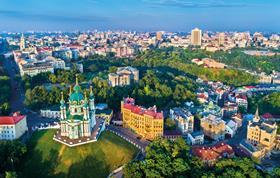
Experts tell us that one of the consequences of the Russian invasion of Ukraine is that post-war international structures are at risk.
We can see it happening before our eyes. When the Russian foreign minister addressed the United Nations at the beginning of last month, dozens of diplomats walked out.
Last week again, senior finance officials from various countries walked out of the G20 meeting, also because of the presence of Russia. International cooperation may take a long time to recover.
What has this to do with lawyers? Well, some international institutions affect our work, notably the World Trade Organisation (WTO), which operates the global system for cross-border trade in goods and services, including legal services. Solicitors – and indeed our country - benefit hugely from easier rules on exporting legal services.
First, the pandemic interrupted the WTO’s operations, particularly its ministerial conferences, which represent its highest decision-making body. Ministerial conferences usually take place every two years, bringing together all members to make decisions on multilateral trade agreements. It was last due to meet in Kazakhstan in June 2020, then in Geneva at the end of last year, both postponed. Now it is finally scheduled to take place this June.
The WTO has faced other severe challenges over recent years. Before the pandemic, there was President Trump, who disrupted many international structures, including the WTO. Now the Russian invasion threatens worse. The whole point of the WTO is to reduce conflict through easing trading relationships, and settling trade conflicts through established peaceful mechanisms.
Western countries opposed to the Russian invasion have recently repeatedly walked out of small-group negotiations within the WTO if Russia is present. The 2022 ministerial conference should be an occasion to deal with enormous issues like the pandemic response package, which is expected to include a decision on the proposed waiver of some WTO intellectual property protections, and work on e-commerce. It may also deal with the consequences of the Russian invasion, and in particular a threatened global food crisis.
If the WTO becomes ineffective or indeed disappears, not only will these global issues lack a forum, but our own profession will face a harder struggle to establish rights to practise in foreign countries.
This is not a sudden and shocking change of direction. WTO members have been gradually moving away from previous hopes placed in a multilateral agreement which will open markets simultaneously around the world. The WTO has been slowing in effectiveness over recent years, not only because of the challenges already listed, but also because a strengthened global south has demanded a different way of operating. So there have been more bilateral and regional trading agreements.
In the UK, this trend has been hastened for us by Brexit and our departure from the European single market.
The consequence of greater bilateralism – witness the prime minister’s visit to India last week – is that work which was focused on shifting one single organisation is now fragmented into dozens of smaller deals.
For an organisation like the Law Society, that means that more resources need to be deployed. So, taking the EU, whereas trading issues were previously focused on a single set of EU institutions responsible for free movement of services, the Law Society now has to negotiate with the bars and other authorities of 27 member states.
Similarly, trade deals with countries around the world take immense investment and work before they come to fruition.
India is a current and useful example for understanding what is involved, being an important country for our legal profession’s export of legal services.
The UK government issued a consultation last year about a potential free trade agreement (FTA), and of course the Law Society responded. In the government’s response, setting out its strategic approach to an Indian FTA, you can see what a mountain the UK legal profession has to climb in India in order to open markets. There is a table which shows that the Indian legal services market is the second most closed of Indian markets, behind only rail freight transport (which is completely closed).
That is not the end of the enquiries. Earlier this year, the House of Commons International Trade Committee and the House of Lords International Agreements Committee launched separate consultations on a potential Indian FTA. There is also a UK-India Legal Services Committee on which representatives of the two countries’ governments and legal professions sit to discuss relevant matters.
India is just one country. There are other significant jurisdictions for the export of our legal services: China, Singapore, the United States, take your pick.
It is obvious that it is easier and more efficient for the opening of markets if there are international structures through which many countries can be dealt with at once. The Russian invasion has endangered all of that.
Jonathan Goldsmith is Law Society Council member for EU & international and a former secretary general of the Council of Bars and Law Societies of Europe. All views expressed are personal and are not made in his capacity as a Law Society Council member, nor on behalf of the Law Society































